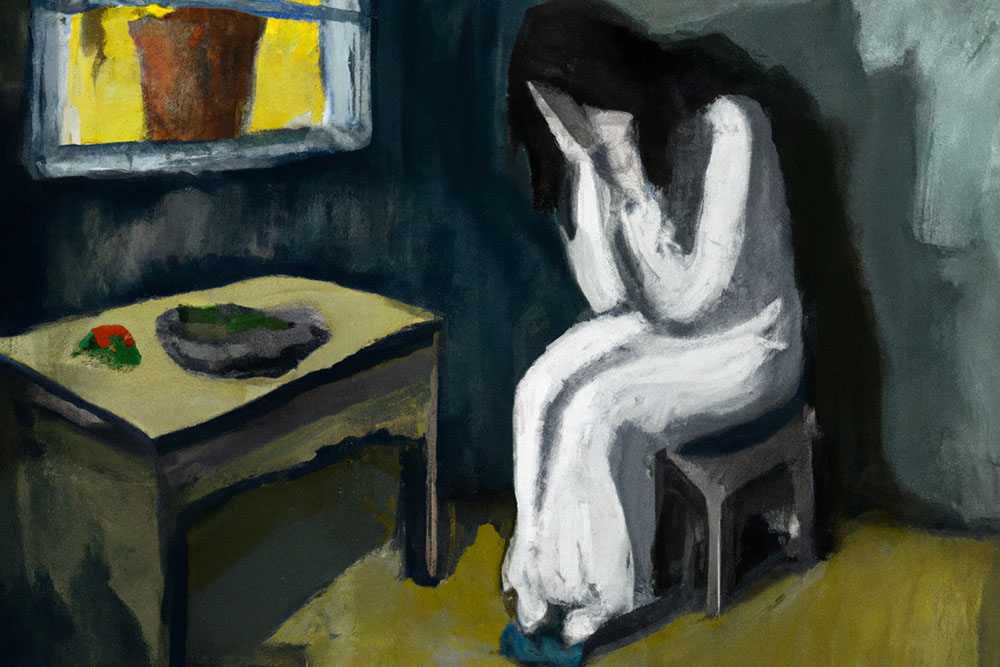Symptoms Of Borderline Personality Disorder
Published on October 14th, 2015
Updated on January 4th, 2024

Borderline Personality Disorder (BPD) is a mental health condition that can affect a person’s life in many ways. The symptoms of BPD cause real challenges for people that suffer with the condition. This is partly because people do not fully understand the symptoms.
It is typical for those with BPD to have an unstable sense of self-worth. They will also struggle with rapidly changing emotions and difficult personal relationships. Their moods can change very quickly between very elated to terribly low.
Suffering from BPD can be challenging for a person in many ways. It affects different areas of a person’s life. Relationships, career, and personal goals are all made more challenging when a person has BPD.
Sponsored by

Choose a therapist to work with and start healing with 20% off from BetterHelp.
Click HereAn important part of finding proper treatment for BPD is knowing the symptoms of the condition. The following list is an overview of some of the most common symptoms associated with this difficult disorder:
Rapidly Changing Emotions.
For people with BPD, emotions can be very unstable. The condition can cause swings between highs and lows in mood. Typical feelings include:
- Elation
- Excitement
- Anxiety
- Intense anger and rage
- Shame
- Panic
- Fear
- Sorrow
Each of these feelings can be experienced unexpectedly, causing the affected person to appear erratic and impulsive.
Unstable Personal Relationships
People who suffer from BPD struggle with relationships. Romantic relationships tend to be especially affected. Mood swings, unpredictable behavior and extreme need for attention make relationships challenging.
People who suffer from BPD can place very high expectations on their primary relationship, making it very intense. They may feel dissatisfied when they do not receive the love that they believe they deserve.
When a person suffers from BPD, their behavior towards their partner can be very demanding. This demanding behavior can often seem ‘clingy’ and unreasonably intense. Such intense behaviors may include:
- Calling and/or texting their partner constantly
- Call their partner at inappropriate times, like when their partner is at work or in the middle of the night
- Making threats of self-harm to seek attention
- Freezing out partner at different times throughout relationship
- Obsessive monitoring of partner
- Physical clinginess and other jealous behaviors
Distress at The Thought of Abandonment
Those with BPD like to feel secure and certain about their plans and relationships, but often struggle to achieve a sense of security. Despite their partner’s best efforts, a person with BPD will struggle to ever feel secure and safe in a relationship. If anything feels uncertain, or plans change last minute, people with BPD can feel extremely distressed.
People with BPD often struggle with separation anxiety with their partners, and will panic or react impulsively if they feel a real or imagined threat of rejection or abandonment.
No Fixed Personality
People suffering with BPD may experience sudden and dramatic shifts in their sense of self-image. They may change their opinions, careers, sexual identity and friends with no reason or warning.
Constant Feeling of Emptiness
People with BPD have a feeling of emptiness that they struggle to fill. This manifests itself in boredom, anxiety, restlessness and fidgeting. To cope with this empty feeling, they may pull away from loved ones. They struggle with a constant sense of dissatisfaction that causes them to feel on edge.
Disturbed Thought Patterns
Disturbed patterns of thinking are common symptoms of BPD. Affected people may experience upsetting thoughts. These thoughts can include feeling like they do not actually exist or are a bad person.
In more severe cases of BPD, out-of-body experiences and paranoid beliefs may also manifest in a person. These symptoms are signs that the condition is becoming more serious. It is important for affected people with these symptoms to seek professional help.
Depression
Depression causes heavy feelings of prolonged melancholy. It can affect a person with BPD in many ways. It will affect their ability to perform at work, socialize with others, and maintain a healthy self-image. Depression can have lasting effects on a person with BPD. Without professional help, a condition of depression is challenging to overcome.
Impulsivity
Another common symptom of BPD seen in many affected people with this illness is dramatic impulsivity. Impulsive behavior exhibited by people with BPD can cause serious consequences. They will affect different areas of a person’s life.
Impulsive behaviors are reckless. They can negatively impact relationships, careers, and general life goals. Such impulsive behaviors may include:
- Reckless money spending
- Promiscuous behavior
- Gambling
- Binge eating
- Substance abuse
- Reckless driving
- Vandalism
- Acting out in violence
- Inappropriate behaviors with others
- Overstepping the personal boundaries of other people
- Lashing out in anger or rage
Self Harm and Suicidal Thoughts
Sometimes the intense feelings of anger experienced by people with BPD can manifest into self mutilation. This may include cutting and burning. This can also lead to suicidal thoughts, threats and attempts to take their own life.
Sponsored by

Find an affordable therapist online with 20% off from BetterHelp.
Click Here






Leave A Reply